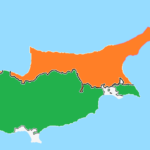The U.S.-Turkey relationship has a long history of complexities, with no golden era to point to. However, even by these standards, recent years have been exceptionally bad. An accumulated series of crises, a dysfunctional framework for the relationship, and diverging threat perceptions have plagued ties.
In particular, five crises that have tested U.S.-Turkey relations in recent years are likely to be on the Biden administration’s agenda: Turkey’s purchase of the Russian-made S-400 missile defense systems and the ensuing U.S. sanctions on Turkey, the Syrian Kurds, the Eastern Mediterranean crisis, the court case against Turkey’s state-owned Halkbank related to U.S. sanctions on Iran, and Biden’s views on Turkey’s democratic regression.
Despite this long list of disputes, former President Trump shielded Turkey from many possible punitive actions. In this regard, his departure bodes ill for Ankara. In his confirmation hearing on January 19, Secretary of State Antony Blinken referred to Turkey as our “so-called strategic partner” in response to a question on Turkey’s purchase of the S-400 systems; this is indicative of the new administration’s mood toward Turkey. In the same vein, in almost all public opinion polls in Turkey, the United States tops the list of countries that people perceive to threaten Turkey’s national security.
Zooming out, in spite of recent positive messaging from Ankara, the crisis in Turkey’s relations with the broader West are set to worsen. This will be evident in divergent readings of international affairs, Turkey’s quest to reduce dependency on the West, and different ideas of what a “reset” would look like.
CONFLICTING WORLDVIEWS ON INTERNATIONAL AFFAIRS
Unlike Turkey’s relations with Europe, U.S.-Turkey relations are essentially a single-file issue: a security partnership that was established within the Cold War context. However, at present, geopolitical decoupling and a divergence in threat perceptions have become the dominant feature of U.S.-Turkey relations, and as the long-running friction between Turkey and U.S. Central Command (CENTCOM) on the Syrian crisis illustrates, the military-to-military ties are becoming increasingly acrimonious.
One of the key issues is Turkey’s purchase of Russian S-400 air defense systems, which, according to many in the West, illustrates Turkey’s realignment away from NATO and the U.S. in defense procurement and geopolitical orientation. For Turkey, the S-400s are not solely — arguably not primarily — motivated by defense considerations; rather this purchase has a geopolitical motivation as well. It has underpinned and strengthened Turkey-Russia relations, particularly in Syria, following their 2016 rapprochement after Turkey shot down a Russian jet in 2015. Even though Russia has refrained from technology-sharing with Turkey regarding the S-400 systems, Turkey has gone ahead with the purchase. The development is deeply concerning to Washington, which worries that Turkey’s purchase could also pave the way for other partners, such as India, to do the same.
More broadly, the way Washington and Ankara read international affairs is diverging. At a time when the U.S. regards China as a systemic rival and relations with Russia are set to become more tumultuous, the governing coalition in Turkey — which is made up of President Recep Tayyip Erdoğan, the far-right Nationalist Movement Party (MHP), and Eurasianist groups and figures (who argue that Turkey should align more closely with Russia and China) — appears to believe that today’s international system is not as Western-centric as it used to be (if not post-Western), and hence Turkey should pursue its interest via a more varied geopolitical balancing act. Turkey’s such reading of international affairs might be seen as abnormal in Washington, but for the governing coalition in Ankara, it is seen as adjusting to the new normal in global politics. And the Turkish government’s reading of international affairs as such is unlikely to change during the Biden administration.
REDUCING DEPENDENCY ON THE WEST
Strategic autonomy has been a fashionable concept in Turkey. Many analysts and policymakers see the independence that this concept insinuates as forming the overarching goal of contemporary Turkish foreign policy.
However, in its application, this nebulous concept effectively means reducing Turkey’s dependency on the West rather than making Turkey an autonomous or independent actor altogether in international affairs. For instance, Turkey is less vocal and less keen in asserting its “strategic autonomy” vis-à-vis China or Russia. The Erdoğan government has been nearly silent on the Chinese persecution of the Uyghur Muslims in order to not antagonize China, as one example. Turkey displays similar extreme caution towards Russia’s sensitivities and redlines. Today, this quest and concept represents Turkey’s paradox in its foreign policy: Seeking to reduce dependency on the West has culminated in Turkey’s increased dependency on and vulnerability regarding China and Russia.
DIFFERENT IDEAS OF A RESET
Another key manifestation of fundamental differences are seen in the different U.S. and Turkish ideas of what a “reset” in the relationship should look like.
For the new Biden administration — which emphasizes strengthening alliances, institutions, and the liberal international order — a reset would appear to mean that Turkey should reverse the course in its relations with Russia and China, particularly by giving up the S-400 systems, and come back to the NATO and Western fold.
In contrast, for the Erdoğan government, a reset means that the U.S. would come to terms with the new geopolitical reality in Turkey’s neighborhood, including Turkey’s role in it, and the broader changes in international affairs. It would mean that Ankara would not reverse course vis-à-vis Russia and China in any significant way. In other words, as great power competition continues to heat up, the U.S. would expect more cohesion and solidarity within the Western bloc, whereas Turkey believes that its best bet lies in engaging a form of balancing act between different powers.
The current government’s idea of a reset is in accordance with its changing idea of the West. In general, one can speak of three different meanings of “the West” in Turkish context — the idea of the West (which has historically served a reference point for Turkish domestic political and economic character), the indispensability of the West (with historically Turkey seeing its ties to the West as indispensable, and filtering its relations with non-Western powers through the lens of its own Western geopolitical identity), and the institutions of the West — we see that, at present, Turkey has largely given up on the first two but still appears attached to the third. It still values its place in NATO and its customs union with the European Union. But attempts to decouple membership in Western institutions from their political, normative, and geopolitical underpinnings is what forms a great source of friction in Turkish-Western relations.
RESET, RUPTURE, AND THE MIDDLE GROUND
While there is a glaring gap between each side’s idea of a reset, there needn’t be a rupture either. Finding a middle ground is possible.
This new middle ground should discard the previous conceptual toolkits — such as strategic alliance or model partnership — to define the bilateral relationship. Such conceptual framings are creating a gap between expectations and reality, which in return creates more frustration in the relationship. The two sides’ security and geopolitical priorities significantly diverge, and therefore should lower their expectations of each other. The new shape of the relationship should be more transactional, with clearly defined objectives and boundaries.
At this stage, there is limited room for progress on the above-mentioned five main areas of contention in relations. A mutually acceptable formula on the S-400 systems is unlikely to be found anytime soon, and this issue is set to become a long-lasting irritant in the relationship. On the Eastern Mediterranean, at best, the crisis can be refrozen, which means launching bilateral talks between Turkey and Greece and both sides refraining from sending ships into contested waters for exploration. Plus, on the Eastern Mediterranean, we are likely to see more policy coordination between the U.S. and Europe. The future of Turkey’s policy towards the Syrian Kurds is intimately linked with the future of the ruling coalition in Turkey, and political developments inside Turkey. As long as Erdoğan’s coalition with the far-right MHP remains in place, the prospect for a policy recalibration is limited. And the Biden administration will likely be more vocal on high-profile, politically-motivated cases such as against the former co-chairman of the pro-Kurdish Peoples’ Democratic Party (HDP) Selahattin Demirtaş, philanthropist Osman Kavala, and novelist Ahmet Altan. Similarly, the Halkbank case will continue to cast a shadow over bilateral ties. All these feuds will make crisis a permanent fixture of U.S.-Turkey relations.
Yet the two can still cooperate on areas of common interest and concern, such as in the Black Sea region, where both sides’ interests overlap. So, they should compartmentalize their relations. In the current political climate, the U.S. and Turkey are unlikely to be able to resolve any of their major files of contention. This in return means that they should invest time and energy in crisis management rather than crisis solution in order to avoid a rupture in the relationship. In other words, crisis management, a transactional approach with clear boundaries, and compartmentalization should define the new shape of bilateral relations. Obviously, such qualitative change in the nature of the relationship requires a new narrative and conceptual toolkits for Turkish-U.S. relations in the new period.
By: Galip Dalay
Source: Brookings



